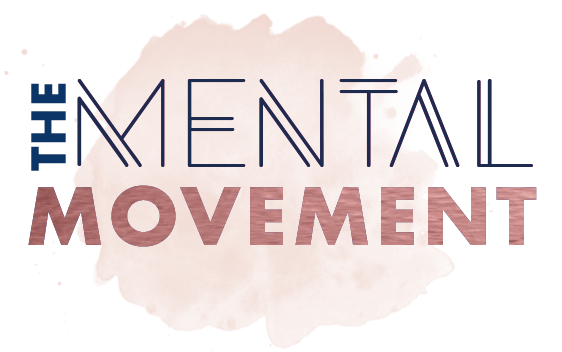It seems to me that the term “coaching” is being used a lot more these days, but the reality is that, unless you’ve had direct experience of a coaching conversation, then you’re probably not that clear on what it really means, what it feels like to be coached (or to coach others) or how it might be useful to you.
In this post, I hope to shed some light on all that and share from my experience, as both coach and coachee, why I believe that everyone could benefit from coaching at some point in their life.
What is it? The definition(s).
Here are a few that I’ve found which I really like:
“Unlocking a person’s potential to maximize their own performance. Helping them to learn rather than teaching them.” (Whitmore, 2003)
“The art of facilitating the performance, learning and development of another.” (Downey, 2003)
“Coaching is a powerful alliance designed to forward and enhance a life-long process of human learning, effectiveness and fulfilment.” (Whitworth et al, 2007)
“Coaching is about enabling individuals to make conscious decisions and empowering them to become leaders in their own lives.” (Wise, 2010)
There are some words/phrases used in these definitions which I love – unlocking, learn rather than teach, art, alliance, fulfilment, conscious decisions.
So perhaps The Mental Movement definition of coaching might sound like this:
The art of creating a powerful and trusted alliance which enables someone to unlock their own mind, tune in to their internal compass and make conscious choices which shift their lives towards fulfilment and contentment.
Bingo. That’s what my kind of coaching is all about.
But I think it’s important to remember that coaching comes in lots of different forms (workplace, informal, life, relationship) and it’s also useful to differentiate coaching from other supportive/therapeutic/developmental conversations and relationships.
- Counselling – the focus is often on the person’s past, whereas coaching tries to stay in the present, and can deal with healing emotional pain or conflict within an individual or in a relationship between two people.
- Psychotherapy – often working with clinically identified mental health conditions (e.g. depression, anxiety, eating disorders), psychotherapists are highly trained and usually align themselves with one or more therapeutic frameworks, such as Cognitive Behavioural Therapy.
- Mentoring – quite different for the others, tends to be more career focused and a mentor should be someone whose path you’re interested in following so they’re able to offer you advice and insight based on their own experiences.
How to choose which is right for you?
If you are struggling with your mood, strong negative emotions or to cope with something going on in your life, then first port of call should be your GP who’ll be able to discuss with you which course of action might be best.
Otherwise, very broadly:
- Dealing with a specific difficult relationship or issue/emotion from the past – counselling
- Wanting to move forwards from your current position, motivation and taking action – coaching
- Career development planning – mentoring (but coaching may also be of use)
But, more importantly than all of this, is finding someone with whom you feel you can have good working relationship, someone who you can trust, feel supported by and who is aligned with what you’re looking to achieve.
[I’ll be posting more tips about how to choose a therapist or coach over the next week.]
So, how does coaching work?
I believe there are a number of key things about effective coaching relationships which make them invaluable for people that want to achieve change and make a move towards contentment:
Trust, mutual respect and likeability
You’re going to be spending quite a bit of time with this person (and paying for it) and, to get great results, you’re going to have to feel comfortable being as open and honest with them as possible.
Independent, unbiased, non-judgemental
Your friends and family want the best for you but they can’t help but be influenced by their own feelings and possibly by their own agenda (whether they know it or not).
A safe sounding board
Both of the above make a good coach feel like a very safe place to share your thoughts and ideas, even before they’re fully developed (see the next bullet as to why this is important).
Saying things out loud
If you trust someone, feel safe and that you’re not going to be judged, then you’re much more likely to let something come out of your head and into the real world – this can be cathartic, a great way of realising how you feel or what’s ‘true’, and can be a critical step in the process of working out what you want or refining your ideas.
Clarification and playback
Once you’ve got over the ‘saying things out loud’ thing, a good coach will listen and watch so carefully that they’re able to extract the essence of what you’re saying and play it back to you. When you hear your thoughts, feelings and ideas purified and distilled in this way, it helps you to identify the real ‘nuggets’ and the pathway forwards becomes more clear.
Challenge
So far, coaching might sound all a big “woo woo” but real results only get achieved with a bit of friendly challenge thrown into the mix. The assumptions that we make and the barriers we’re unable to break down are what stop us from moving forwards on our own. Sometimes we just need to be asked to reframe the problem or remove the imaginary boundaries that we’ve set up, in order to find a way forwards.
Small steps, right now
A coaching conversation will help you to build a plan for roughly how you’re going to move towards a desired future state, but the emphasis will very much be about the steps that you can take right now to get started on that journey. The smaller you break down the steps and the more doable they are today, the more likely you are to be motivated by your progress, for it to be repeatable/sustainable and for you to reach that future state.
What format does a coaching relationship take?
I have a few different types of clients – ones which come to me with a specific thing to work through which we tend to be able to do over the course of around four 90 minute sessions, then longer term relationships where someone gets value from our sessions across a range of issues/subjects and we meet as the need arises, perhaps intensively for a period then they may disappear again for a few months.
In terms of each session, the nature of what we talk about is entirely driven by where the client feels there’s most value to be gained. However, is often goes a bit like this:
- The first part of the session is usually spent talking quite broadly about what’s going on – this is the cathartic bit and often clients find they’ve been talking for 30 mins without hardly taking a breath
- I then help them to refine this down to the real subject that they’d most like to work on, defining what the heart of the issue is (often there’s lots of other ‘noise’ which needs to be cleared out of the way) and where they’d ideally like to get to
- We then move into planning and action – what can be done right now, what information do they need to gather, who else could they talk to – this includes commitments to timeframes and permission for me to hold them accountable
- Finally, we have a reflective chat about how they feel, what they’ve got out of the session and anything they’d like to add
My clients will do ‘homework’ in between sessions and the next session will always open with a reflection on what they’ve been up to and how the issue and/or their attitude towards the subject may (or may not) have changed since we last met.
I think all of my clients would say that they leave a session feeling:
- They’ve had a cathartic opportunity to share what’s going on for them
- They’ve got more clarity and order to their thoughts
- They have several small things to take away and work on
- More motivated and positive about themselves or their situation
- More grounded and present
And they’ve usually had a bit of a giggle in the process, which I find always helps.
What kind of things have I worked on?
- Concern and anxiety around current career – exploring values and priorities to determine whether good fit – the answer in the end was that it was and they were able to move forwards with confidence
- Building and moving forwards with growth strategy for a small business
- How to alter mindset around being single – where, when and how to make an effort, and when not
- Managing anxiety around birth of second child – changing mindset and planning some coping strategies
- Changing mindset around body image and dieting – planning a more enjoyable and sustainable approach to well-being and physical confidence
- How to re-position self and career after a period of time out
- Finding balance in life between fulfilling work and other interests
Essentially, I feel that I can make a difference to people who are committed to change and/or want to find contentment with what they already have but haven’t been able to do this on their own.
Final thoughts
I hope this piece has shed some light on the world of coaching, or perhaps just my world of coaching.
Because we’ll all reach cross-roads, challenges and points of opportunity in our lives at some point, I passionately believe that there’s huge amount of value for almost everyone (there are a small handful of people who are uncoachable!) in getting support from an independent and trained coach, therapist or counsellor.
Later this week I’ll be posting links re:
- How to choose a therapist
- What a coach can and can’t do for your career
- 10 basic ingredients of good therapy
- Someone else’s view of what coaching’s all about
As part of my business, I offer a free 30 minute intro session so that we can both get to know each other and find out more before we commit our time and money.
If you’re interested in finding out more about me click here or what I do click here.
Until next time…..


